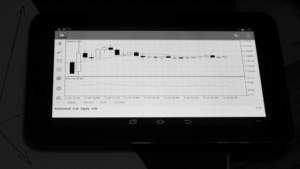
For freelancers and self-employed individuals, understanding tax-saving strategies is crucial for maintaining financial health.
Taxes can be significant, but with the right knowledge, you can reduce your tax liability and keep more of your hard-earned money. From deductions for home offices to retirement savings, numerous strategies are available.
Home Office Deduction
The home office deduction is an essential tax-saving strategy for freelancers and self-employed individuals. You may qualify to deduct associated expenses if you use a part of your home exclusively for business. This can include a portion of your mortgage interest, rent, utilities, and repairs.
It’s important to calculate this deduction accurately based on the square footage of your home office relative to your entire home.
The IRS offers two methods for this deduction: the simplified method, which allows a deduction of $5 per square foot, up to 300 square feet, and the regular process, which requires detailed records of all expenses.
Using the home office deduction effectively requires understanding the IRS’s criteria for what qualifies as a home office. The space must be used regularly and exclusively for business purposes, not personal activities.
Business Equipment and Supplies
Deducting business equipment and supplies is another effective way to lower your tax liability. This includes items necessary for your business operations, such as computers, software, office furniture, and even internet service.
The key is maintaining detailed records and receipts for all purchases, which can be critical during an audit. For freelancers, categorizing expenses correctly is vital. Equipment and supplies must be ordinary and necessary for your business.
For example, a freelance graphic designer can deduct expenses for design software and high-quality monitors, while a writer might deduct the cost of writing tools and ergonomic chairs. A crypto OTC trader can deduct the cost of high-performance computing equipment and secure storage devices.
The cost of these deductions can add up quickly, so keeping thorough documentation helps maximize the benefits.
Health Insurance Premiums
Health insurance premiums can be expensive, but freelancers and self-employed individuals can deduct these costs under certain conditions. You can deduct premiums paid for yourself, your spouse, and your dependents.
This deduction applies to traditional health insurance plans and qualifying long-term care insurance premiums.
To qualify, you must not be eligible for an employer-subsidized health plan through your employer or spouse. This deduction is especially beneficial for freelancers who need to purchase insurance independently, as it helps offset the cost and reduce taxable income.
It’s advisable to consult with a tax professional to ensure you’re meeting all requirements and maximizing your deductions.
Retirement Savings Contributions
Contributing to a retirement savings plan secures your future and offers immediate tax benefits. Options like a SEP IRA, SIMPLE IRA, or Solo 401(k) allow freelancers to contribute a portion of their income, thereby reducing their annual taxable income.
These plans offer higher contribution limits than traditional IRAs, making them a powerful tool for tax planning.
Choosing the right retirement plan depends on your income and retirement goals. For instance, a Solo 401(k) offers the highest contribution limits, which can be advantageous if you want to maximize your savings.
Contributions to these plans are tax-deductible, meaning they can significantly lower your taxable income, offering immediate and long-term financial benefits.
Travel and Vehicle Expenses
Travel and vehicle expenses related to your business are also deductible. This includes the cost of traveling the world for business meetings, conferences, or even business-related errands.
You can choose between the standard mileage rate or the expense method for vehicle deductions. The standard mileage rate for 2024 is 65 cents per mile. Accurately tracking your mileage and maintaining detailed records of your travel expenses is crucial.
If you choose the actual expenses method, this includes keeping receipts for gas, repairs, and other related costs. Remember, the vehicle must be used for business purposes, and personal use should be minimized or excluded from these deductions.
Continuing Education and Professional Fees
Investing in continuing education can enhance your skills and make you more competitive in your field. Expenses for courses, workshops, seminars, and certifications directly related to your business are deductible.
This also extends to subscriptions to industry publications, membership fees for professional organizations, and other related costs. Professional fees, such as legal or accounting services, are also deductible, provided they are directly related to your business operations.
Health Savings Accounts (HSAs) and Flexible Spending Accounts (FSAs)
HSA and FSA accounts allow you to set aside pre-tax dollars for eligible medical expenses, reducing your taxable income.
HSAs are available to those enrolled in high-deductible health plans (HDHPs) and provide a “triple tax advantage” — contributions are tax-free, growth within the account is tax-free, and withdrawals for qualified medical expenses are tax-free.
FSAs, typically offered through an employer, also allow you to save pre-tax money for medical expenses. While FSAs generally have a “use-it-or-lose-it” rule — meaning unused funds may be forfeited at the end of the year — HSAs have no such limitation, allowing funds to roll over indefinitely.
HSAs and FSAs can help lower your taxable income and provide financial benefits for managing healthcare costs. It’s crucial to keep track of eligible expenses and ensure you meet the contribution limits set by the IRS.





